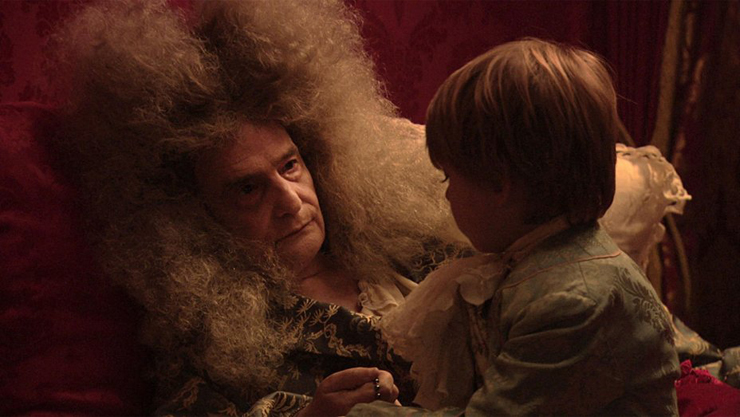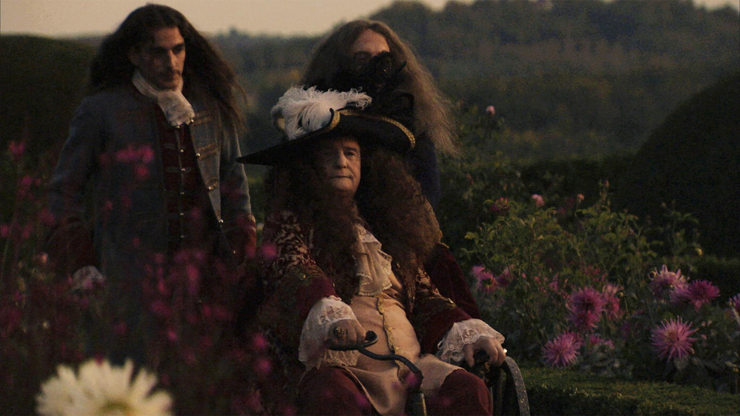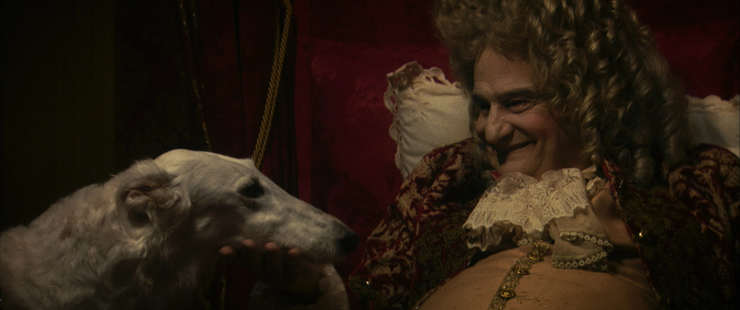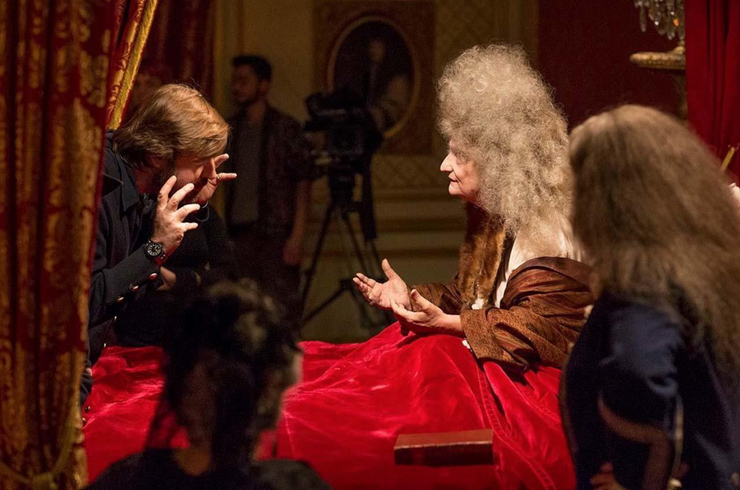
Jean-Pierre Léaud.
His Majesty is in repose but still very much in charge. France's Sun King has suddenly taken ill at the start of Albert Serra's "The Death of Louis XIV." He has returned from an outing to Versailles' lush gardens with a sharp pain in his leg, but at least he has his greyhounds. The canines lick his hands and lift his spirits, if only for a fleeting moment.
Such moments of levity are few and far between in this pared-down costume drama, set in 1715, that's nevertheless more accessible than it might initially appear. For the remainder of its nearly two-hour running time, Serra locks viewers in the royal chambers and throws away the key. The journey may be arduous at times, but it's never less than arresting, thanks to Spanish-born director Serra's admirable commitment to the constraints he has imposed for himself and to the rigor with which he captures the deterioration of his protagonist, played by Jean-Pierre Léaud ("The 400 Blows"), himself French movie royalty.

Clément Censier, Jean-Pierre Léaud, Marc Susini.
For a movie about decay, "The Death of Louis XIV," which screens Friday at the Miami Beach Cinematheque as part of its "Speaking in Cinema" series, is quite ravishing. Whether Serra is zeroing in on the dark spots growing on Louis' affected leg, cutting away to closeups of his concerned chief physicians or taking in the monarch in bed from a distance, many of cinematographer Jonathan Ricquebourg's gorgeously composed chiaroscuro frames looks like Rembrandt paintings come to life. They prevent this deliberately paced (but never dull) portrait of a monarch in decline from feeling dry or claustrophobic.
But "Louis XIV's" is a lot more than the sum of its pretty surfaces. What makes the film resonate is not just what Serra does, but what he doesn't do. Instead of trying to make a sweeping statement of what it means to be a king, he rolls up his sleeves and focuses on the business at hand: a methodical account of this 17th and 18th century leader's final three weeks. "Louis XIV" is a chronicle of the end of a reign, but it's also a film about gangrene. It conveys the toll that the crown exacts on its wearer, but it's also about the administering of final rites. Its fly-on-the-wall depiction of power jostling and slowly escalating desperation in the face of the inevitable eschews heavy-handed symbolism at every turn. In semiotics terms, the film is pure signifier, and therein lies the source of its strength.

Jean-Pierre Léaud.
Lest you think it's all gloom and doom, Serra does hold on to an impish sense of humor. Willing to try anything at a certain point, the royal advisers invite Dr. Le Brun (Catalan poet Vicenç Altaió), a medicine man of unorthodox methods. Okay, he's a quack, but Louis' people are grasping at straws. Skeptical doctors question Le Brun about his qualifications, but the charlatan gets his day in the sun all the same, thanks to his miraculous elixir ... made out of bull's semen. Altaió, who starred in Serra's "Story of My Death," wrests the spotlight away from the key players with a velvet glove. He's a grade-A bullshit talker who pulls a fast one on the world leader. Altaió's gleefully absurdist screen presence gives the proceedings a shot in the arm that makes the more somber content considerably easier to take.
And, aside from some brief glimpses of the serene exteriors surrounding Versailles, Serra, working from a screenplay he co-wrote with Thierry Lounas, is able to sustain a straightforward narrative while remaining in one setting. He doesn't allow himself the luxury of lush exteriors or eye-popping crowd scenes. His is an introspective brand of period evocation, one that rewards your patience, not only by dramatizing a turning point in European history from a very intimate perspective, but by capturing the tenor of that time.

Albert Serra, Jean-Pierre Léaud
The film ends, not with the pageantry of a funeral, but with the clinical scientific inquiry of an autopsy. But it's not just internal organs that come under Serra's magnifying glass. It's a way of life that is being dissected here.
"The Death of Louis XIV" opens on Friday, April 28 at the Miami Beach Cinematheque with a special 7:30 p.m. showing and post-screening discussion as part of the Speaking in Cinema series. Director-co-screenwriter Albert Serra is scheduled to attend the event. The discussion will be hosted by Miami New Times and Independent Ethos film critic Hans Morgenstern, and will also feature Film Comment critic and filmmaker Yonca Talu. For tickets and information on subsequent showings, go to www.mbcinema.com.
 MAIN MENU
MAIN MENU

